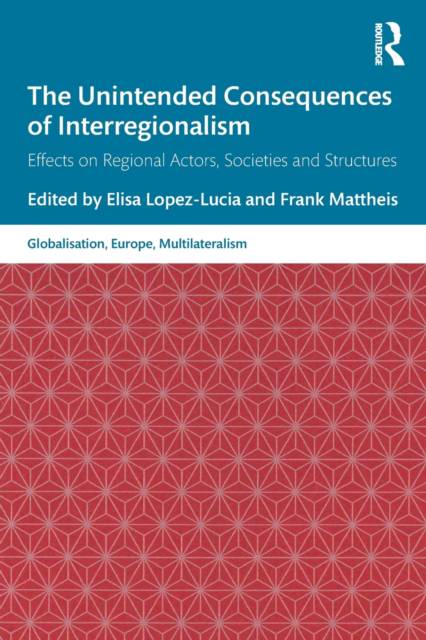
- Retrait gratuit dans votre magasin Club
- 7.000.000 titres dans notre catalogue
- Payer en toute sécurité
- Toujours un magasin près de chez vous
- Retrait gratuit dans votre magasin Club
- 7.000.0000 titres dans notre catalogue
- Payer en toute sécurité
- Toujours un magasin près de chez vous
The Unintended Consequences of Interregionalism
Effects on Regional Actors, Societies and Structures
Description
This edited book brings a new analytical angle to the study of comparative regionalism by focussing on the unintended consequences of interregional relations.
The book satisfies the need to go beyond the consideration of the success or failure of international policies. It sheds light on complex interactions involving multiple actors, individual and institutional, driven by various representations, interests and strategies, and which often result in unintended consequences that powerfully affect the socio-political context in which they unfold. By providing a new conceptual framework to understand how interregionalism brings about social change, the book examines the effects on the individual and institutional actors of interregional relations, and the effects on the social structures that constitute interregionalism. It also examines interregionalism's transformational character for structures of regional and international governance, as well as societies.
This book will be of key interest to scholars and students in the fields of comparative regionalism, interregionalism, EU studies, international and regional organisations, global governance and more broadly to international relations, international politics and (comparative) area studies.
Spécifications
Parties prenantes
- Editeur:
Contenu
- Nombre de pages :
- 228
- Langue:
- Anglais
- Collection :
Caractéristiques
- EAN:
- 9780367554842
- Date de parution :
- 31-12-20
- Format:
- Livre broché
- Format numérique:
- Trade paperback (VS)
- Dimensions :
- 155 mm x 231 mm
- Poids :
- 340 g

Les avis
Nous publions uniquement les avis qui respectent les conditions requises. Consultez nos conditions pour les avis.





